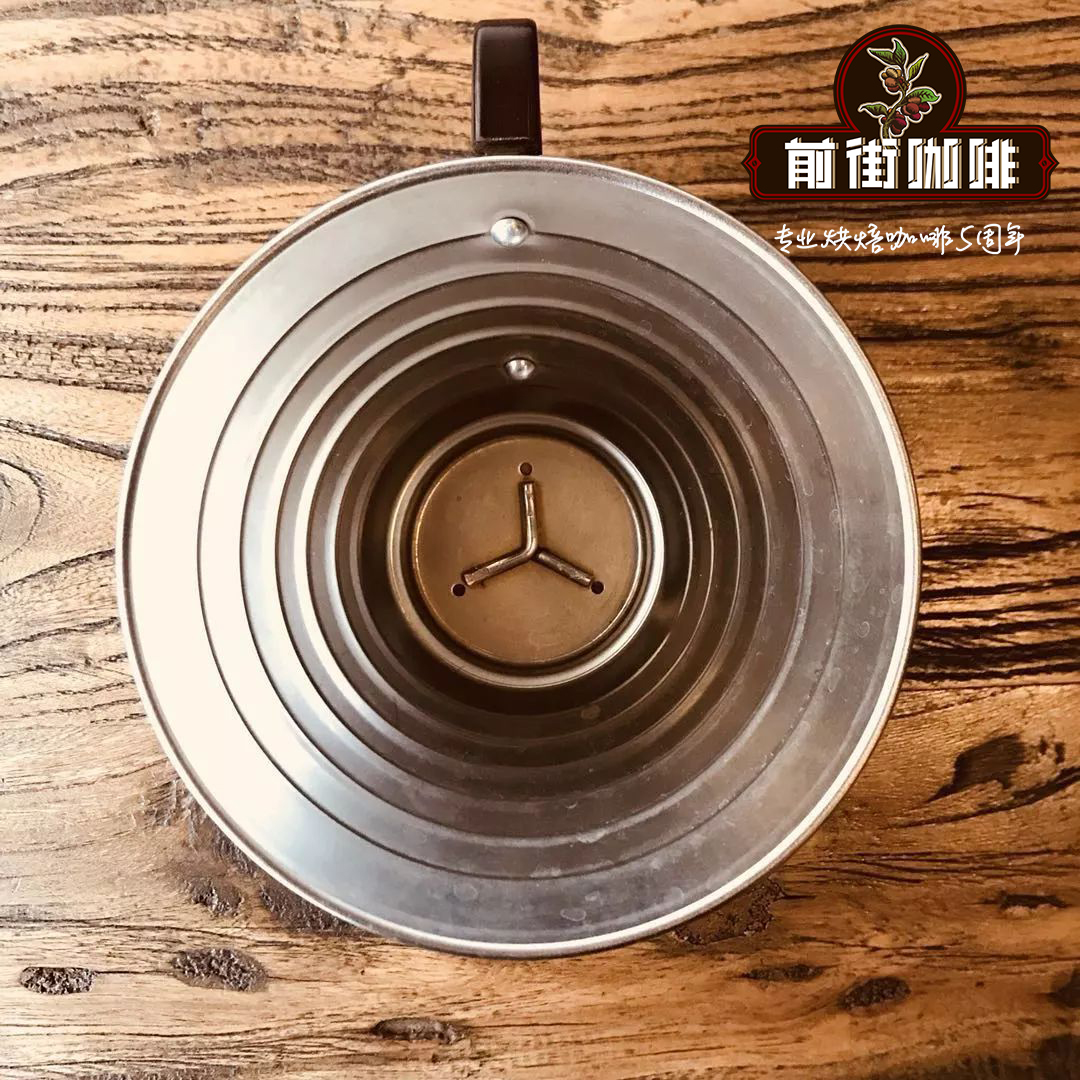Detailed introduction of the grading system of Kenyan coffee beans-Why Kenyan coffee brands are so valuable

Professional coffee knowledge exchange More coffee bean information Please pay attention to coffee workshop (Weixin Official Accounts cafe_style)
The best Arabica coffee in Africa is found in Kenya, where the coffee grading system is not only the most complete and credible, but also directly or indirectly affects many countries. Kenya's coffee cultivation history dates back to the end of the 19th century, and coffee seeds have been imported from Ethiopia, the world's oldest coffee-producing country. Kenyan coffee is best known for its unique, distinct fruit sweetness, and many people who are afraid of sour coffee will have wonderful expressions on their faces after trying good Kenyan coffee-how can there be such sour, fragrant and sweet coffee? "Less coffee, more like fruit tea" is a common feeling of many people to light roast Kenyan coffee, want to taste a different cup of coffee? Start by boiling a cup of Kenya coffee that is sour and sweet like fruit tea!
Kenya grows high-quality Arabica coffee, coffee beans almost rich in cherry taste, with a slightly sour, thick aroma, very popular with Europeans, Kenyan coffee has surpassed Costa Rica coffee, become one of the most popular coffee.
Kenya, located below the equator in East Africa, grows high-quality Arabica coffee beans.
Coffee beans are medium-large in size, thick and round in flesh, rich in taste, moderate in acidity, and exudes a unique flavor; grades are divided into seven grades according to the size of coffee beans, and the taste is divided into six grades from top to bottom.
In the taste recommendation "Kenya AA" is particularly well received, AA or AA+ stands for the highest grade, Kenya coffee quality is quite good, except Kenya this country is all above the plateau, coffee beans are grown in the area of 4000-6500 feet above sea level, another feature, the quality of the entire Kenya coffee beans is controlled by the local government, and adopt a transparent coffee bean auction system.
Kenya is a model coffee-producing country. No country in the world places as much importance on producing high-quality coffee as Kenya, where all coffee must be purchased and cup-tested by the Coffee Board of Kenya (CBK), established by the government, after harvest, and sent to buyers. Coffee buyers from around the world bid according to the quality of the samples they received at an auction in Nairobi, the capital. The government-run auction system encourages more than 570,000 small-scale coffee farmers across Kenya because good quality can easily lead to good prices. In fact, the Kenyan government has done more than that. The government has also provided numerous small coffee farmers with the technology to grow good coffee, mentored nearly 300 agricultural distribution cooperatives to better handle green beans, and CBK has invested in production, quality research, marketing, and even financial counseling for the coffee industry. All of this contributes to Kenya's unparalleled appeal and crazy love of coffee lovers from all over the world.
Kenya's coffee cultivation history dates back to the end of the 19th century, coffee seeds from the northern neighbor, is also the world's oldest coffee producing country "Ethiopia" introduced, currently common are Bourbon (Bourbon), Kents (Kents), Typica (Typica) and Luri 11 (Riuri 11) four varieties. Kenya's terrain is complex and varied, with plateaus, deserts, canyons and grasslands. Coffee producing areas are distributed in the central and southwestern parts and the eastern original areas with an altitude of 1000 to 2500 Michael, such as Mount Kenya in the central part, Aberdare Zone, Nyanza, Kasii and Bungoma in the west, Kericho and Nakuru in the east. Kenyan coffee is overwhelmingly "organically grown" without certification because improved cultivation techniques are used and chemical pesticides or herbicides are rarely used. Kenya's premium coffees (AA Plus, AA, AB, PB) are water washed, while non-water washed (M buni) lower grades are for local use only.
Kenya coffee classification system is very special, is based on "particle size","cup quality" and "weight" as a secondary basis for classification. The following is a breakdown of Kenya coffee grades:
Kenya Coffee Grading Instructions
AA Plus (AA+) Excellent AA grade in cup quality (flavor, taste)
AA Screen Size 17--18 Size
AB particle size (Screen Size) 15- 16 size, accounting for most of the yield
C particle size (Screen Size) is smaller than AB
TT Light weight beans blown from AA and AB grade beans by air filter
T Light weight beans blown from C grade beans by air filter
E Elephant Bean A large variant of two beans in one, also known as Elephant Ear Bean.
UG does not meet the above criteria
PB Peaberry, classified by appearance, independent of flavor weight
M buni (Natural) The lowest grade of non-washed beans, only for domestic market.
2002/12 Tabulated: Huangding Coffee Life Museum
Kenyan coffee is best known for its unique, distinct fruit sweetness, and many people who are afraid of sour coffee will have wonderful expressions on their faces after trying good Kenyan coffee-how can there be such sour and sweet coffee? "Less coffee, more fruit tea" is a common feeling many people have for medium and light roast Kenyan coffee. In addition to the obvious and fascinating fruit acidity, Kenya coffee is mostly grown by small coffee farmers in a variety of different environments, with different climates and rainfall each year, bringing a variety of distinct and unique personalities. Take AA Plus grade "Kenya AA+Samburu" as an example. Samburu from 2001 has a strong aroma of dark plum, not high acidity and strong taste. Samburu newly harvested in winter of 2002 presents a completely different flavor, mulberry berry and green plum, accompanied by a little spicy flavor. After drinking, it has a sweet aroma of green tea, slightly higher acidity than the previous year, and still strong taste. The usual Kenyan flavors are not intense, but have fruity bright flavors, some with spices and some with red wine aromas. Kenya is just like that, so coffee fans are full of expectations and surprises!
Important Notice :
前街咖啡 FrontStreet Coffee has moved to new addredd:
FrontStreet Coffee Address: 315,Donghua East Road,GuangZhou
Tel:020 38364473
- Prev

What brand of Kenyan coffee tastes good? Kenya AA coffee is the first choice. Kenya coffee flavor description.
Professional coffee knowledge exchange more coffee bean information please follow the coffee workshop (Wechat official account cafe_style) Kenya's top AA from the mysterious Kenya of East Africa, is a high-altitude cultivation of Arabica coffee beans, after washing, strong fruit flavor, strong rich flavor, in the eyes of global coffee connoisseurs have an irreplaceable position. Kenya AA refers to Compendium 7.2
- Next

Who is suitable for Columbia Coffee? introduction to the History of Starbucks via Columbia Coffee Story
For more information on coffee beans, please follow the Coffee Workshop (official Wechat account cafe_style) Colombia is the second largest producer of coffee and the largest exporter of Arabica beans. This coffee is full-bodied and sweet with caramel. The taste is gentle and the lingering finish is like a gentleman in coffee. Moderate rules are the best choice for light coffee.
Related
- Detailed explanation of Jadeite planting Land in Panamanian Jadeite Manor introduction to the grading system of Jadeite competitive bidding, Red bid, Green bid and Rose Summer
- Story of Coffee planting in Brenka region of Costa Rica Stonehenge Manor anaerobic heavy honey treatment of flavor mouth
- What's on the barrel of Blue Mountain Coffee beans?
- Can American coffee also pull flowers? How to use hot American style to pull out a good-looking pattern?
- Can you make a cold extract with coffee beans? What is the right proportion for cold-extracted coffee formula?
- Indonesian PWN Gold Mandrine Coffee Origin Features Flavor How to Chong? Mandolin coffee is American.
- A brief introduction to the flavor characteristics of Brazilian yellow bourbon coffee beans
- What is the effect of different water quality on the flavor of cold-extracted coffee? What kind of water is best for brewing coffee?
- Why do you think of Rose Summer whenever you mention Panamanian coffee?
- Introduction to the characteristics of authentic blue mountain coffee bean producing areas? What is the CIB Coffee Authority in Jamaica?

